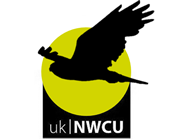More than £60k has been seized from a man in Derby who illegally traded in the ivory from elephants killed by poachers between the 1970s and 1990s.
The offences all took place between 2011 and 2016 and saw him make around £65,000 worth of transactions through an online selling site.
Officers started an investigation in 2016 after UK Border Force intercepted a package to China which contained ivory.
A search warrant was then carried out at the 44-year-old’s address on London Road, Derby, and officers discovered a large amount of ivory goods, including unworked tusks cut from the endangered animals, cutlery and ornamentals including billiard balls, figurines, and a cigarette holder.
The 45-year-old pleaded guilty to the offences and was given a two-year jail sentence, suspended for two years.
Now, following a hearing at Derby Crown Court on Saturday 19 March 2022, Law is subject to a confiscation order which will see him lose £61,266.97 worth of cash or assets.
PC Emerson Buckingham of the Derbyshire Rural Crime Team led the investigation, alongside the National Wildlife Crime Unit and UK Border Force.
PC Buckingham said: “No one should profit from criminal activity, and it is perhaps particularly distressing to think how much money was handed over as a result of the suffering of animals. It’s surprising to think that crimes involving endangered species have taken place in Derby, and this should be a warning that anyone involved in such activity that not only may they face a sentence, but they can also be ordered to forfeit any so-called ill-gotten gains.”
Chief Inspector Kevin Kelly, head of the National Wildlife Crime Unit said: “The illegal wildlife trade is a global issue, and this is an example of an international case with reach ending on the streets of the UK. Criminals exploit our animals for their own selfish gain with little to no regard for their welfare, inflicting the worst types of cruelty to maximise monetary gain. Legislation relating to wildlife crime is often complex so it’s refreshing to see that wildlife criminals are now being punished financially, this is a small step towards justice for exploited animals. I am grateful for the efforts of Derbyshire police, specifically PC Buckingham who has worked tirelessly to bring this case to justice.”
The confiscation order has been brought under the Proceeds of Crime Act (or POCA) which allows the police to apply for cash to be seized from criminals who have made their money through criminality.
It is typically used after sentence, and can see criminals forced to sell properties, cars or jewellery that belongs to them to pay off their debt.
The money that is seized under POCA is split between the police and the Government and is often used to fund community projects.
Derbyshire Police and Crime Commissioner Angelique Foster welcomed the confiscation order saying it sent a strong message to criminals. She said: “Offenders should never be allowed to profit from their criminal activities, and we must continue to pursue them to recover their illegal gains and redistribute this money to tackle crime in our communities. I believe it is important that when we receive money in this way that it is used to fund community safety and crime prevention initiatives, boosting the work to tackle crime. I commend the relentless commitment of Derbyshire Constabulary’s police officers to recover these criminally acquired profits. This is exactly what people want in Derbyshire.”
The ivory will now mostly be distributed to other forces, the National Wildlife Crime unit trainer, Border Force CITES Team, and the Museum of Scotland for training purposes. The remaining will be destroyed to prevent it going back into the trade.
A spokesperson for Border Force said: “The illegal wildlife trade in endangered species is driven by organised crime groups and the movement across borders of protected plants and animals is key to how they operate. Our specialist Border Force officers remain committed to clamping down on the illegal wildlife trade and work tirelessly across the UK. They will continue their vital work at the border to prevent the importation, transhipment and exportation of endangered animals and plants, as well as working alongside other enforcement partners such as the National Wildlife Crime Unit and police from across the UK to eradicate this ruthless and exploitative trade.”
Source: Derbyshire Police





